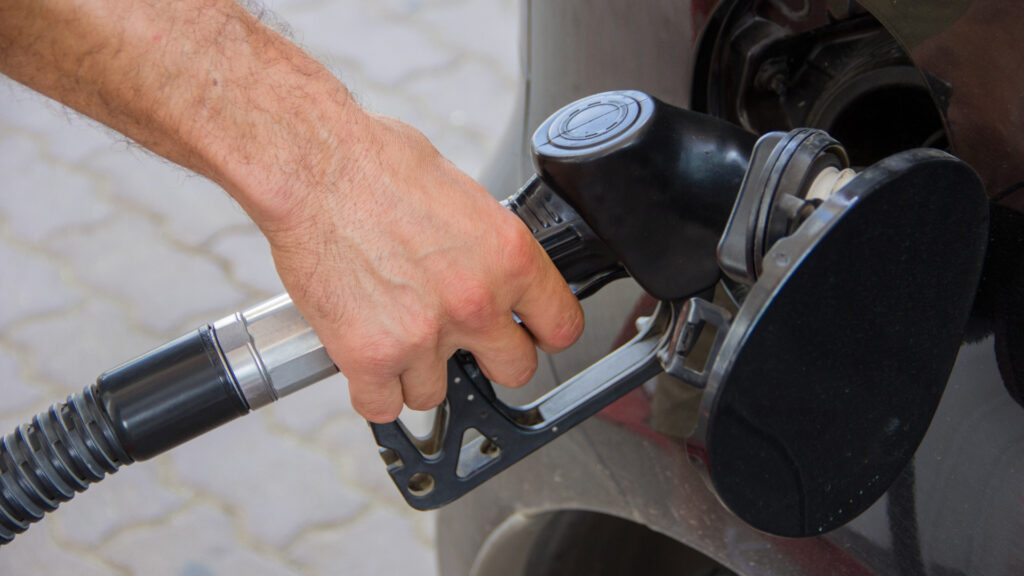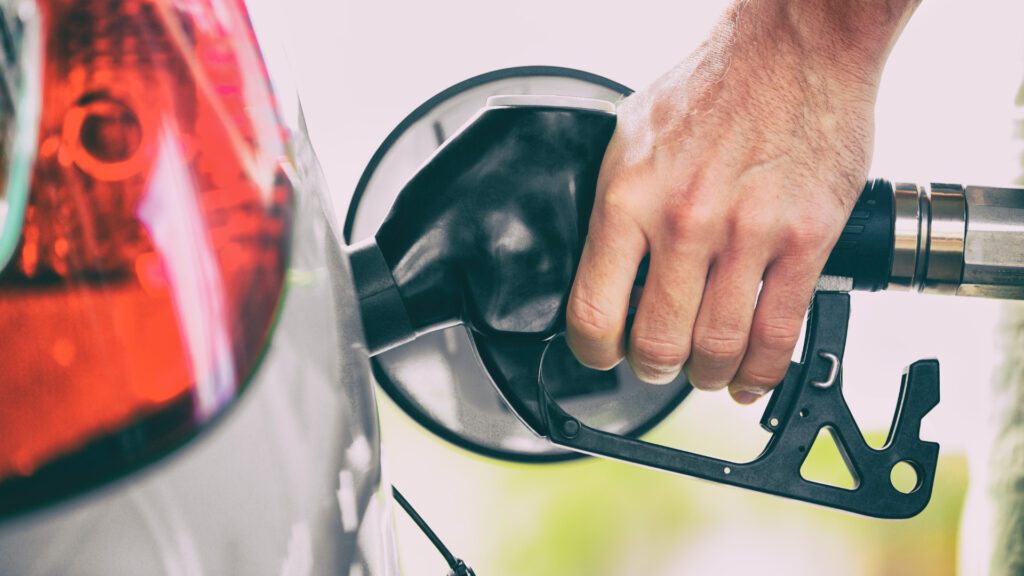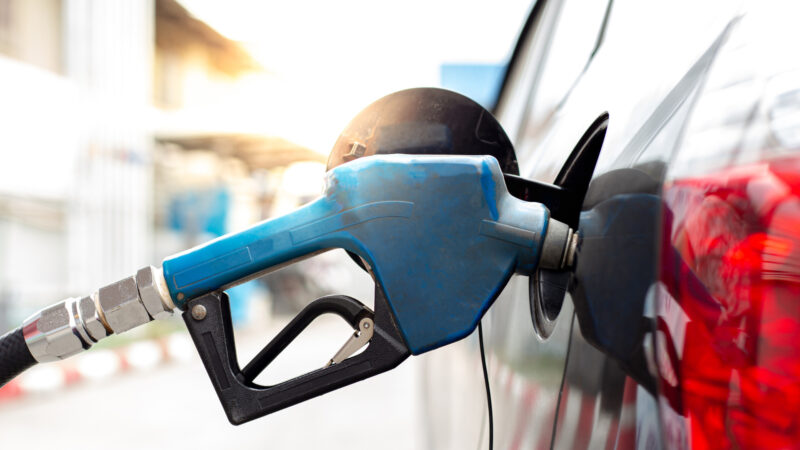Table of Contents Show
As a driver, you typically can’t go wrong by taking safety seriously, especially at fuel stations. When stopping to fuel up, most drivers immediately turn their car off.
However, some may wonder if drivers are acting overly cautious by turning off their engines at the pump. Can you save time and pump gas while a car is running?
Most people know that gasoline is a dangerous substance and deserves respect. An explosion can occur in the blink of an eye. Today, we are answering whether filling up a running car is good or bad. Let’s get started!
Is It Legal to Pump Gas While Your Car Is Running?
Safety isn’t the only thing you need to consider when pumping gas while a car is running. In some places, doing so can also have legal consequences. Depending on the location, it may not be a slap on the wrist.
No federal law prohibits drivers from filling up while a vehicle is running. However, like many other road rules, some states have specific regulations. For example, violators in California and Washington can receive stiff fines and punishments, including up to 90 days in jail.
What Happens If You Pump Gas While Your Car Is Running?
When you pump gas into a running car, the fuel will go into your tank like normal. However, as you likely know, gasoline is highly flammable. While you may not always see them, fueling your tank emits vapors. The slightest spark can ignite these vapors.
Plenty of drivers have filled up their tanks without issue. On the other hand, like lightning strikes, the odds may be low, but disasters can still happen. If we were you, we’d think twice about whether or not it is worth it.
Dangers of Pumping Gas into a Running Vehicle
There are several potential dangers in pumping gas into a running vehicle. Let’s consider why you should shut off your engine before pumping fuel into your car.
Fire and Explosions
One of the most obvious reasons for shutting down your engine is to avoid the risk of fire or explosions. The flashpoint for gasoline sits between -40°F and -45°F, which means it can easily light in just about any temperature you experience. In addition, it also doesn’t take much to ignite.
A tiny spark from your vehicle is all it takes to ignite it. This can result in a severe fire or deadly explosion. Letting your engine run at a gas station puts you and others in grave danger. Do everyone a favor and turn it off as quickly as possible.
Personal Injury
As you can imagine, even a small fire or explosion can cause severe injuries to you or anyone around the scene. Burns from these explosions can be painful and cause permanent scars. If you’ve ever experienced a slight burn, you know you want to avoid them.
You also most likely don’t want to cause physical harm to you or anyone else. It will hurt, and you’ll live the rest of your life knowing you caused the situation.
Avoid the potential of causing pain and suffering to yourself and others by shutting off your engine.
Keep in Mind: Have you heard? The World’s Largest Gas Station Is Now Open!

Vapor Lock
You also likely want to avoid another vehicle condition known as a vapor lock. This occurs when liquid fuel in the fuel system transforms into a vapor due to heat. These vapors expand and create pressure throughout the system.
This can lead to various issues, including rough idling, stalling, decreased engine performance, or other fuel systems issues with pumps and injectors.
The best way to avoid these issues is to turn off the engine when fueling. You can also keep the fuel cap closed, avoid overfilling, and wait a minute before starting the engine after refueling. Doing so can give you and your vehicle the best chances of preventing vapor lock.
Damage Emissions Control System
Pumping gas while your vehicle is running increases the chances of causing damage to the emissions control system on your car. While the chances may be low, they’re not zero.
These devices reduce pollution and emissions that get released into the atmosphere. If you live in an area that requires annual inspections, these issues could cause you to fail.
In these situations, raw gasoline can reach the catalytic converter. If it does, it could heat up and cause extensive damage to the catalytic converter or other components in the exhaust system.
This can cause increased wear and tear on these parts and reduce their life expectancy. Unless you want to be best friends with your mechanic, avoiding these issues is best.
Keep in Mind: You want to be careful about the kind of gas you use, but should you be concerned about using expired gas? Does gas expire? Click the link to find out!
Overfilling the Tank
While the pump has safety features that will likely kick in, they may not always do their job. Pumping too much gas into your fuel tank can cause many issues for your vehicle and the environment.
A fuel spillage will also create a fire hazard for you and the gas station. They won’t be happy to find a puddle of highly combustible fuel on the ground. In addition, gasoline can leach into the environment and contaminate nearby water sources that humans and animals depend on.

Legal Consequences
As mentioned, pumping gas into a running vehicle is illegal in some states.
You could face serious legal consequences by simply not turning off your engine, such as stiff fines and jail sentences. If you think gas prices are high, try tacking on a penalty. That’s one expensive trip to the gas station!
Is Pumping Gas While Your Car Is Running Worth It?
We don’t recommend pumping gas while your car is running. Leaving your vehicle on won’t save you more than a second or two, and the potential dangers and risks are not worth it.
You don’t want to be responsible for causing trouble for yourself, others, or the gas station.






